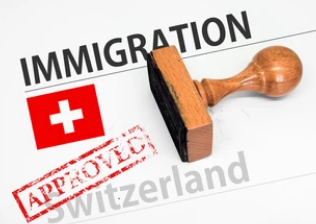Article 36 of the Swiss Citizenship Act (SCA) allows the Secrétariat d’Etat aux Migrations (SEM) to declare null and void a simplified naturalization decision when it can be assumed that it has been granted on the basis of false information or of a deliberate concealment of material circumstances by the concerned individual. In other words, the SEM can intervene when it seems that naturalization has been obtained through unfair and deceptive behavior adopted by the addressee of the decision (TAF, F-3127/2016, consid.5.1., May 8th 2017).
The optional nature of article 36 SCA offers some flexibility for the authorities, nonetheless strictly limited by the general prohibition of abuse of right governing the legal system.
The SEM can proceed to the annulment of the naturalization decision within two years after discovering the legally relevant circumstances, and, at the latest, within eight years following the moment when the naturalized person acquired the Swiss citizenship (vs. five years “only” before March 2011).
When it comes to a simplified naturalization decision, the rationale of the “annulment” institution lies in the fact that conditions for obtaining such a naturalization are relatively uncomplicated compared to those of the more classical path leading to Swiss citizenship. Indeed, if married to a Swiss citizen, the concerned individual doesn’t need to observe the ten years residency condition but only has to respect the two following requirements (article 21 SCA):
- He/she must have resided for at least five years in Switzerland, including one year immediately prior to making the simplified naturalization application and;
- He/she must have lived for three years in marital union with his/her wife or husband.
According to the Swiss Federal Court, this condition presupposes not only the existence of a formal couple but also of a real and stable communal life (ie. “communauté de vie stable”, ATF 130 II 169, consid. 2.3.1.). The firm intention of the spouses to maintain their conjugal community after the intervention of the naturalization decision must exist from the day when the application is filed and shall be formalized within a common declaration (“déclaration de vie commune”).
The naturalization annulment produces ex-tunc effects, meaning that it puts the concerned individual back in what was his/her situation before he/she was granted the Swiss citizenship. The annulment also extends to the individual’s family members who obtained their own Swiss citizenship based on the decision at stake. However, this knock-on effect isn’t automatic but must result from a case-by-case assessment, keeping in mind that children are in any case exempted from this extension if (article 36 al. 4 SCA):
- They are, at the time of the declaration of nullity, over the age of 16 and meet the requirement of a classic naturalization (ie. the residence condition previously mentioned and some personal conditions, mainly related to their integration in Switzerland) or;
- They would become stateless as a result of the declaration of nullity.
For case law, the simple fact that they cannot be blamed for an unfair behavior doesn’t in itself constitute a determining factor regarding the exemption (TAF-F-6242/2017, consid.10., July 8th 2019).
Due to the fact that most aspects of conjugal life pertain to the private and intimate sphere, not easily accessible to the administration, the authority can base its conclusions on a presumption in order to prove that the concerned naturalized individual lied when he/she declared forming part of a real and stable communal life with his/her spouse. A rapid chain of events between the granting of the naturalization and the martial separation allows the SEM to assume that the naturalization has been obtained fraudulently (ATF 135 II 161, consid.3.). A chain of events is deemed “rapid” when the time elapsed between the two aforementioned events doesn’t exceed two years (TC, 1C_377/2017, consid. 2.1.2., October 12th 2017).
For the Federal Administrative Court (TAF), competent jurisdiction in the matter, the presumption is substantially strengthened (TAF, F-6242/2017, consid. 8.) by several elements, relatively intrusive, called “faisceau d’indices”, such as:
- The fact that the couple had serious difficulties (including verbal and physical violence and humiliation) way before submitting the “déclaration de vie commune” to the authorities in charge of examining the naturalization request. The fact that the naturalized spouse endured the situation with the hope of giving a chance to his/her marriage has been considered as a negative element, suggesting the non-existence of a real, stable and forward looking conjugal life at the moment when the Swiss citizenship was granted (TAF, F-6242/2017, consid.8 et seq);
- The fact that the spouses were aware, at the moment of their wedding, that one of them had a reproductive problems possibly leading to the lack of common offspring. Tribunals considered this element as a source of potential conflict between the spouses, weighing even more negatively if the spouses somehow tried to overcome this deficiency (TF, 1C_472/2011, December 22nd 2011, consid. 2.1.4.);
- Differences of political and religious opinions among the couple, considered as a latent source of conflict between the spouses (TF, 1C_472/2011, consid. 2.1.4.);
- The fact that the spouses didn’t spend enough time together (TF, 1C_472/2011, consid. 2.1.4.);
- The fact that the spouse, benefiting from the simplified naturalization quickly remarried after the pronouncement of his/her divorce with the Swiss citizen; this element seems to have even more weigh if the said new marriage is concluded with a compatriot (TAF, F-5978/2016, June 28th 2019, consid. 6.3.);
- The conditions that surrounded the conclusion of the marriage; mainly when it was concluded in order to allow the foreign spouse to obtain a residence permit or at least to legalize his/her position in Switzerland (TAF, F-5978/2016, June 28th 2019, consid. 6.4.1.);
- The fact that the foreign spouse quickly requested his/her naturalization after the expiration of the legal stay duration in Switzerland. For tribunals, this shows the foreigner’s eagerness to obtain Swiss nationality, rendered possible by his/her marriage with a Swiss citizen (TAF, F-5978/2016, consid. 6.4.2.);
- The fact that the foreign spouse didn’t introduce his/her spouse to his/her family (TAF, F-5978/2016, consid. 6.4.3.);
- The fact that the couple didn’t take any concrete measure in order to save their marriage when conflicting circumstances manifested themselves (TAF, F-5978/2016, consid. 6.4.3.);
- A large age gap between the spouses is also an element taken into consideration in the overall assessment but it, due to its judgmental nature vis-à-vis moral standards of foreign countries, can only be used with great prudence and restraint. It has even more weight when, in case of subsequent remarriage, the age between the new spouses is of much less importance (TAF, F-5978/2016, consid. 8.)…
According to Tribunals, it’s up to the interested party to rebut the legal presumption by rendering plausible (“vraisemblable”), alternatively (TF, 1C_472/2011, consid. 2.1.3.):
- The occurrence of an extraordinary event, after the acquisition of the naturalization, likely to explain the sudden degradation of the conjugal link or;
- The fact that the spouses ignored the seriousness of their relationship issues at the moment when the signed the déclaration de vie commune certifying the existence of their real, stable and forward looking community life.
Have been considered as such an “extraordinary event”, conflicts in a relationship resulting from the conjunction of a difference among the spouses’ lifestyles following the naturalization (ie. mainly the fact that one occupied a job and not the other) together with the intervention of a psychiatric collapse suffered by the Swiss spouse, rendering the continuation of the relationship hardly conceivable. The fact that the separation was the Swiss spouse’s initiative has also been taken into account (TAF, F-3005/2018, May 24th 2019, consid. 8.8.).
On the contrary, the fact that the Swiss spouse took, alone, the decision to put an end to her marriage due to her new “retired” statute and her unwillingness to show herself to her husband in poor health was rejected by tribunals. The latter considered that the couple could’ve thought about this situation when contracting the marriage and, therefore, that this event couldn’t be considered as “extraordinary” nor rebut the legal presumption. The fact that the couple never met any kind of conflict wasn’t even taken into account by the relevant jurisdiction (TAF, F-5978/2016, June 28th 2019, consid. 7.2.).
In conclusion, it must be rendered credible that the true disunity process only started after the simplified naturalization was granted (TAF, F-3005/2018, May 24th 2019, consid. 8.8.). The underlying rationale is that a long and strong union cannot collapse in a short time lapse without an external event being the reason and without the spouses being aware of it (TF, 1C_587/2013, consid.3.4.).
Contact us at legalexpat@oalegal.ch for more information.
04/12/19 – Sophia Ouadouri, trainee at Legal Expat Geneva




